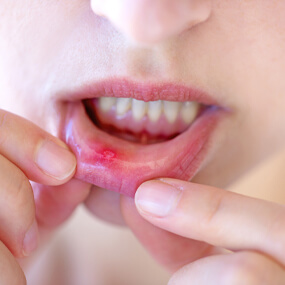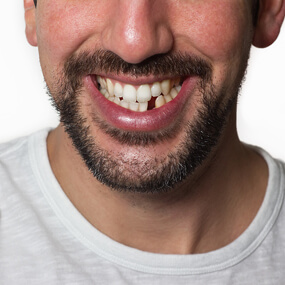Brushing for Two: How to Approach Oral Care During Pregnancy

Mothers-to-be have a lot going on—and even more so if this is their first child. Expecting parents are often so focused on the health of the child that the health of the mother gets overlooked. This not only puts the mother at risk but can inadvertently affect the child as well. Oral hygiene is a prime example.
Women should be visiting their dentists on a regular basis in the lead-up to conception. Once a woman knows she is pregnant, she should schedule a dental appointment as soon as possible. Those changes you are undergoing can affect your oral health as well, and dental problems can affect your baby.
Why Oral Health Often Declines During Pregnancy
It is quite common for pregnant women to experience more dental issues than normal. In fact, the American College of Obstetricians and Gynecologists has advised OB/GYNs to increase awareness and recommend increased dental care. Let us consider some factors that contribute to decreased oral health:
- Tiredness—Pregnant women are often exhausted. This can cause them to forget or skip brushing and flossing. It may also encourage them to adjust their schedules and put things off. That regular cleaning and checkup may not seem so important when you have so much going on. But that puts you at risk of plaque, and this is a time when you a particularly prone to gum disease.
- Hormonal changes—The changes in your body are the reason you are more susceptible to gum disease. It is called pregnancy gingivitis, and it is characterized by gums that are red, swollen, and otherwise irritated. Gums may bleed more easily while brushing or flossing. Left untreated, gingivitis can develop into more advanced periodontitis. There is also ample scientific evidence linking even gingivitis with low birth weights, premature births, and other related issues.
- Morning sickness—Morning sickness, as well as acid reflux and heartburn, are all cause for concern when it comes to your oral health. The acids from your stomach attack the tooth enamel and make you more prone to cavities. These issues should be discussed with your dentist.
- Grazing—Grazing tends to be bad for our teeth because acids and sugars attack our teeth over time. Pregnant women are more prone to grazing than normal because they are hungrier than usual, and so their regular routines are thrown out of whack. Brushing more frequently is not the answer. You should rinse vigorously with water after snacks and consider chewing sugar-free gum.
- Chewy vitamins—Pregnant women are often prescribed supplements in order to bolster the health of their child and themselves. Many women find it easier to take these in a chewy or gummy form, but those are very bad for the teeth, and you must take care to remove all the sticky bits.
How Your Oral Health Can Affect Your Baby
When it comes to dental health, concern for your baby’s health is all about the bacteria in your mouth. If your oral health is poor or oral hygiene suffers, bacteria levels can rise. That bacteria can enter the bloodstream. The immune system will ordinarily attack such bacteria. But a pregnant woman’s immune system is repressed, which makes it easier for that bacteria to reach other parts of the body. If that bacteria reaches the uterus, it can affect the child in a couple of ways:
- Oral bacteria in the uterus can trigger the production of prostaglandins intended to combat the inflammation. But prostaglandins also play a role in low birth weights and preterm births.
- The other concern is vertical transmission, which is when the mother passes the oral bacteria onto the child. Babies can be born with gum disease and be susceptible to other oral health issues.
Brushing and Flossing Can Significantly Reduce That Risk
When a pregnant woman brushes twice a day and flosses daily, her baby is much less at risk of these complications. The general advice is to brush after breakfast and before bed. Use fluoride toothpaste and a soft-bristled brush. Floss once every 24 hours. Rinse vigorously with water after other meals.
See your dentist as soon as you know you are pregnant. Your dentist may adjust the above general advice during your pregnancy. He or she may also increase the schedule at which you have your teeth cleaned and your mouth examined. This is normal and nothing to be alarmed about.
Any preexisting dental conditions or any that you develop while pregnant can have a very real effect on your unborn child. Eat well. Avoid the foods and beverages that are bad for your teeth. Approach your dental health just as you do every other aspect of your pregnancy.
Smile… You’re Pregnant!
Your oral health is crucial to the overall health of your unborn child. It is highly recommended that you schedule a visit with your dentist as soon as you get the news—no matter how recent your last checkup. Jeffrey D. Clark, DDS, can perform a comprehensive exam, assess your oral health, and make recommendations that are specific to you and your baby. Schedule your appointment with Dr. Clark today by calling Scottsdale Cosmetic Dentistry Excellence at 480 585 1853.




